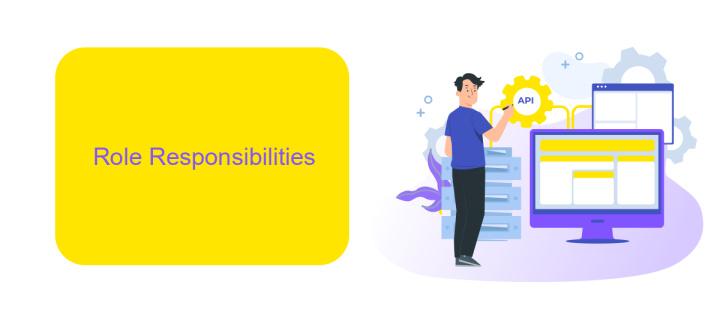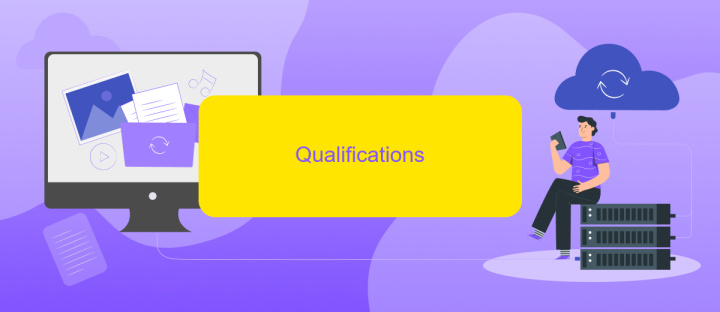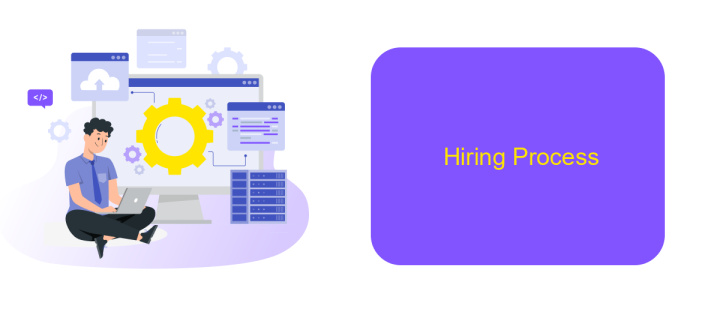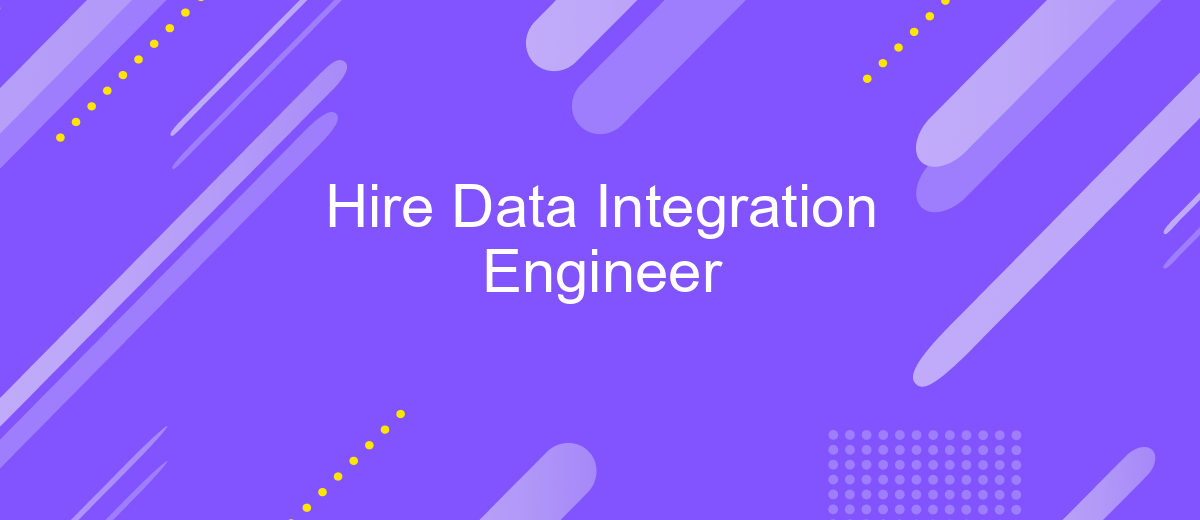Hire Data Integration Engineer
In today's data-driven world, the role of a Data Integration Engineer is more crucial than ever. These professionals ensure seamless data flow between systems, enabling businesses to make informed decisions and maintain operational efficiency. Hiring a skilled Data Integration Engineer can significantly enhance your organization's data management capabilities, driving innovation and growth. Discover why investing in top talent is essential for your success.
Introduction
In today’s data-driven world, the role of a Data Integration Engineer has become increasingly vital. These professionals are responsible for ensuring seamless data flow across various systems, enabling businesses to make informed decisions based on comprehensive data insights. Hiring the right Data Integration Engineer can drastically improve your company’s data handling capabilities and operational efficiency.
- Streamline data processes
- Ensure data accuracy and consistency
- Integrate multiple data sources
- Enhance data accessibility
One of the tools that can significantly aid in data integration is ApiX-Drive. This service simplifies the process of connecting various applications and automating data workflows, making it easier for Data Integration Engineers to manage and synchronize data across platforms. By leveraging such tools, businesses can achieve a higher level of data integration and operational excellence.
Role Responsibilities

The Data Integration Engineer will be responsible for designing, developing, and maintaining data integration processes to ensure seamless data flow across various systems. This role requires a deep understanding of data architecture, ETL processes, and data warehousing. The engineer will work closely with data analysts, data scientists, and other stakeholders to identify data requirements and implement solutions that meet business needs. They will also be responsible for troubleshooting and resolving any data integration issues that arise, ensuring data accuracy and integrity at all times.
Additionally, the Data Integration Engineer will leverage tools like ApiX-Drive to automate and streamline data integration tasks. They will configure and manage integrations between different software applications, ensuring that data is synchronized and accessible in real-time. The engineer will also document data integration processes, create technical specifications, and provide training to other team members on best practices. Staying updated with the latest trends and technologies in data integration will be key to continuously improving the efficiency and effectiveness of data integration solutions.
Qualifications

We are seeking a highly skilled Data Integration Engineer to join our dynamic team. The ideal candidate will possess a strong background in data integration, ETL processes, and data warehousing. They should be adept at working with various data sources and have a keen eye for detail to ensure data accuracy and consistency.
- Bachelor's degree in Computer Science, Information Technology, or a related field.
- Minimum of 3 years of experience in data integration and ETL processes.
- Proficiency in SQL, Python, and data integration tools such as ApiX-Drive.
- Experience with cloud platforms like AWS, Google Cloud, or Azure.
- Strong understanding of data warehousing concepts and best practices.
- Excellent problem-solving skills and attention to detail.
- Ability to work collaboratively in a team environment and communicate effectively.
Familiarity with ApiX-Drive will be a significant advantage, as it streamlines the integration process and ensures seamless data flow across various platforms. If you are passionate about data and have the qualifications listed above, we would love to hear from you.
Hiring Process

Hiring a Data Integration Engineer involves a multi-step process designed to identify candidates with the right blend of technical skills and experience. The initial phase focuses on sourcing and screening potential candidates through various channels such as job boards, professional networks, and recruitment agencies.
Once suitable candidates are identified, they undergo a series of interviews to assess their technical proficiency, problem-solving abilities, and cultural fit. These interviews typically include coding challenges, technical questions, and scenario-based discussions to evaluate their expertise in data integration tools and methodologies.
- Initial resume screening
- Technical interviews
- Practical coding tests
- Final interview with senior management
Throughout the hiring process, it’s essential to evaluate candidates' familiarity with data integration platforms like ApiX-Drive. This service streamlines the integration process, making it easier to connect various applications and automate workflows. By ensuring candidates are well-versed in such tools, you can enhance your organization's data handling capabilities and improve overall efficiency.
- Automate the work of an online store or landing
- Empower through integration
- Don't spend money on programmers and integrators
- Save time by automating routine tasks
Interview Questions
When interviewing a Data Integration Engineer, start with questions that gauge their understanding of data integration principles. Ask about their experience with ETL processes, data warehousing, and data transformation tools. Inquire about specific projects where they have integrated data from multiple sources and how they ensured data quality and consistency. Understanding their approach to troubleshooting data integration issues and their familiarity with data governance practices is also essential.
Delve deeper by asking about their experience with integration platforms and tools. For instance, you might ask how they have utilized services like ApiX-Drive to streamline data integration tasks. Explore their proficiency in scripting languages such as Python or SQL, and their ability to automate data workflows. Questions about their experience with cloud-based data integration services, API management, and handling large datasets will provide insight into their technical capabilities and problem-solving skills.
FAQ
What does a Data Integration Engineer do?
What skills should I look for when hiring a Data Integration Engineer?
How can a Data Integration Engineer help my business?
What tools do Data Integration Engineers commonly use?
How do I ensure the security of my data during integration?
Apix-Drive is a simple and efficient system connector that will help you automate routine tasks and optimize business processes. You can save time and money, direct these resources to more important purposes. Test ApiX-Drive and make sure that this tool will relieve your employees and after 5 minutes of settings your business will start working faster.


